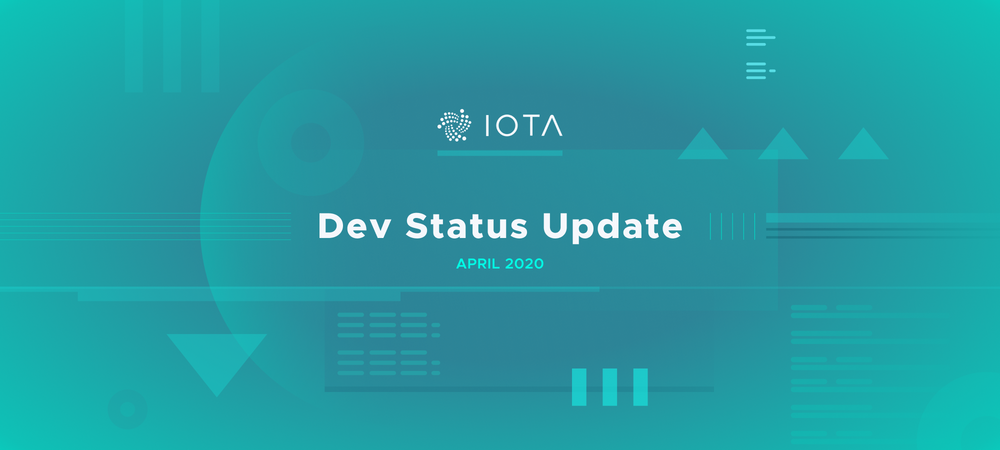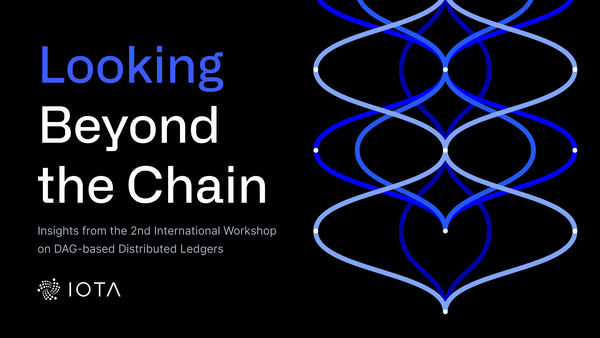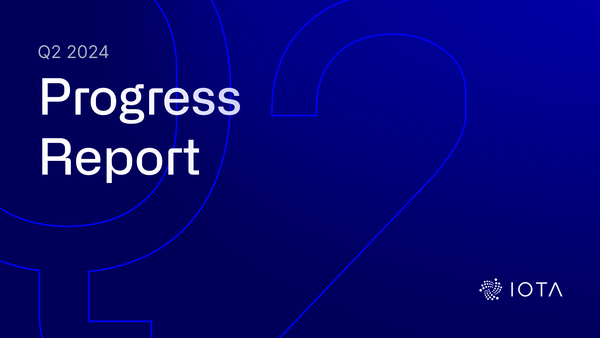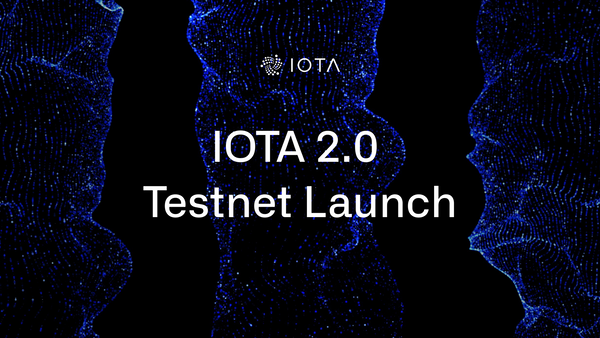Dev Status Update — April 2020
Published by the IOTA dev team every month, this update will provide you with news and updates about our key projects! Please click here if you want to see the last status update.
The research department is also releasing a monthly update that you might want to see.
The research and engineering teams, together with the Hornet team, have been working on finalizing the specifications for the first Chrysalis changes. You can see the specifications in the linked RFCs, as well as comment and contribute yourself:
- Weighted Uniform Random Tip Selection (Protocol RFC #8)
- White Flag (Protocol RFC #5)
- The Ed25519 signature scheme specification needs to be adjusted as it will be coupled with UTXO.
The remaining Chrysalis specifications will be drafted in the upcoming weeks and the goal is to finalize and merge them into the protocol-rfc repository in May.
Autopeering, also a part of Chrysalis, is already being tested in the Hornet node software. The plan is to include autopeering already in the next Hornet release.
The team is finalizing the work on the first Bee prototype. The team has been working on the last pieces of the puzzle: the milestone detection and tangle traversals. In our internal tests, Bee has already solidified its first milestone. The prototype will be released and available for testing in May. The main goal is to finish milestone detection and tangle utilities which will allow full solidification of the node.
You can find all Bee RFCs in their respective GitHub repository.
The team released IRI 1.8.5 last month. The version included important bundle validation rule changes that addressed potential vulnerabilities. The team is now focusing on the next minor version, IRI 1.8.6. This version will mainly include new solidification logic and other fixes, for example, taking local snapshots should be faster than before.
We expect the RC of IRI 1.8.6 to be out next week.
As announced last week, we have shifted our attention to developing a new Smart Contract approach as a layer 2 solution building on Coordicide’s development in GoShimmer. We plan on releasing a more detailed post on the developed solution in the coming weeks. A brief introduction can be found here.
The Trinity team has been working in three key areas. A recent focus has been on building a PoC app and website to demonstrate the possibilities of the Unified Identity Protocol. More info will follow on this project.
On the Trinity side, the team has been closing out issues, updating dependencies and resolving some friction points. Recent spam has been causing a nuisance for Trinity users and the team has taken steps to resolve this issue, including adding mobile transaction filtering. A new version will be available soon.
Finally, the team has continued planning for the wallet after Trinity. A Jobs to be Done workshop was held to ensure the spec meets current and future user needs. Focus now turns to help define the client libraries for Chrysalis, with reusable addresses forming a large component of the new wallet’s capabilities. The team is hard at work to complete the DID project and place Trinity in low maintenance mode so they can be freed up to focus primarily on the next generation wallet.
The GoShimmer team is currently working on developing further components that will support value transactions with a conflict resolution by the connected FPC protocol. You can read more about the development in the last research update.
We currently plan on releasing the new version of GoShimmer in the first half of June.
You can follow the project on its GitHub repository. If you want to get involved, check out our updated contributing guidelines.
We recently released the first alpha version of IOTA Streams (previously MAM). We are now working on publishing more documentation and examples on our site so that more of you can jump in and test the functionality. We appreciate any feedback, both on the implementation and the documentation.
The team is now finalizing CLI functionality for the new permanode and will focus on solidification next. We have also reflected in the roadmap the fact that the team decided to make use of the Rust Tokio runtime instead of developing a custom runtime for the permanode. The Tokio runtime proved to be sufficient for the current implementation.
The current goal is to have the new version of the Permanode released at the end of May or the first half of June.
We have made some more significant updates to our roadmap as well as adjustments to general timelines of different projects. The highlights are:
- The Qubic section has been changed to IOTA Smart Contracts. The section now displays the finalized Qubic PoCs and will focus only on IOTA Smart Contracts going forward.
- Client libraries — the timeline has been shifted to be in line with the Chrysalis update. The client libraries will require significant changes to support Chrysalis.
- Permanode — optimized permanode runtime has been canceled. The initial implementation of the permanode will be built on the Tokio runtime.
- MAM has been renamed to IOTA Streams.
- The IOTA Streams alpha implementation has been marked as complete. The subsequent developments, fixes and changes are towards the C and Rust implementation items.
As always, we welcome everyone to stop by on Discord— every project mentioned here has a channel (or more) for discussion with the devs!
Follow us on Twitter to keep track of all the latest news: https://twitter.com/iotatoken




